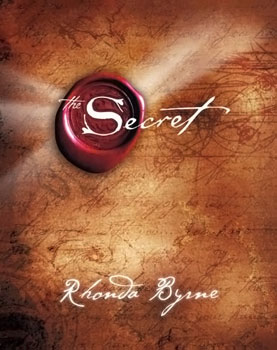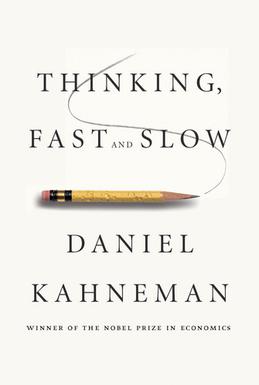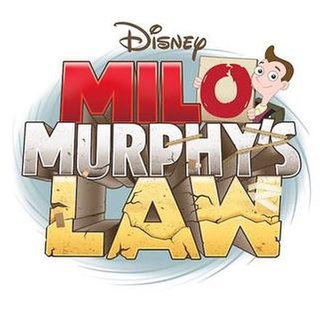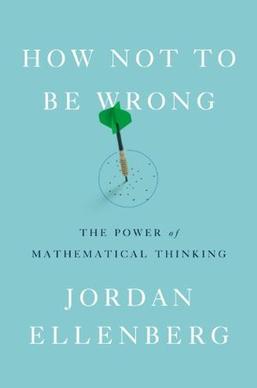Hanlon's razor is an adage or rule of thumb that states:
Murphy's law is an adage or epigram that is typically stated as: "Anything that can go wrong will go wrong." In some formulations, it is extended to "Anything that can go wrong will go wrong, and at the worst possible time."

Sturgeon's law is an adage stating "ninety percent of everything is crap". It was coined by Theodore Sturgeon, an American science fiction author and critic, and was inspired by his observation that, while science fiction was often derided for its low quality by critics, most work in other fields was low-quality too, and so science fiction was thus no different.

The Commentaries on the Laws of England are an influential 18th-century treatise on the common law of England by Sir William Blackstone, originally published by the Clarendon Press at Oxford between 1765 and 1769. The work is divided into four volumes, on the rights of persons, the rights of things, of private wrongs and of public wrongs.

Edward Charles Francis Publius de Bono was a Maltese physician and commentator. He originated the term lateral thinking, wrote many books on thinking including Six Thinking Hats.

Norman Vincent Peale was an American Protestant clergyman, and an author best known for popularizing the concept of positive thinking, especially through his best-selling book The Power of Positive Thinking (1952). He served as the pastor of Marble Collegiate Church, New York, from 1932, leading this Reformed Church in America congregation for more than a half century until his retirement in 1984. Alongside his pulpit ministry, he had an extensive career of writing and editing, and radio and television presentations. Despite arguing at times against involvement of clergy in politics, he nevertheless had some controversial affiliations with politically active organizations in the late 1930s, and engaged with national political candidates and their campaigns, having influence on some, including a personal friendship with President Richard Nixon.

Charles John Klosterman is an American author and essayist whose work focuses on American popular culture. He has been a columnist for Esquire and ESPN.com and wrote "The Ethicist" column for The New York Times Magazine. Klosterman is the author of twelve books, including two novels and the essay collection Sex, Drugs, and Cocoa Puffs: A Low Culture Manifesto. He was awarded the ASCAP Deems Taylor award for music criticism in 2002.
Shit happens is a slang sentence that is used as a simple existential observation that life is full of unfortunate unpredictable events, similar to "c'est la vie". The sentence is an acknowledgment that bad things happen to people seemingly for no particular reason.

Robert Patrick Murphy is an American economist. Murphy is research assistant professor with the Free Market Institute at Texas Tech University. He has been affiliated with Laffer Associates, the Pacific Research Institute, the Institute for Energy Research (IER), the Independent Institute, the Ludwig von Mises Institute, and the Fraser Institute.
The law of attraction is the New Thought spiritual belief that positive or negative thoughts bring positive or negative experiences into a person's life. The belief is based on the idea that people and their thoughts are made from "pure energy" and that like energy can attract like energy, thereby allowing people to improve their health, wealth, or personal relationships. There is no empirical scientific evidence supporting the law of attraction, and it is widely considered to be pseudoscience or religion couched in scientific language. This belief has alternative names that have varied in popularity over time, including manifestation and lucky girl syndrome.

The Power of Positive Thinking: A Practical Guide to Mastering the Problems of Everyday Living is a 1952 self-help book by American minister Norman Vincent Peale. It provides anecdotal "case histories" of positive thinking using a biblical approach, and practical instructions which were designed to help the reader achieve a permanent and optimistic attitude. These techniques usually involved affirmations and visualizations. Peale claimed that such techniques would give the reader a higher satisfaction and quality of life. The book was negatively reviewed by scholars and health experts, but was popular among the general public and has sold well.

Jordan Stuart Ellenberg is an American mathematician who is a professor of mathematics at the University of Wisconsin–Madison. His research involves arithmetic geometry. He is also an author of both fiction and non-fiction writing.

The Secret is a 2006 self-help book by Rhonda Byrne, based on the earlier film of the same name. It is based on the belief of the pseudoscientific law of attraction, which claims that thought alone can influence objective circumstances within ones life. The book alleges energy as assurance of its effectiveness. The book has sold 30 million copies worldwide and has been translated into 50 languages. Scientific claims made in the book have been rejected by a range of critics, pointing out that the book has no scientific foundation.

Bruce Allen Murphy is a judicial biographer and scholar of American Constitutional law and politics. He is the Fred Morgan Kirby Professor of Civil Rights at Lafayette College in Easton, Pennsylvania, a position he has held since 1998. Prior to that appointment, he was a professor of Political Science and a professor of American History and Politics at Pennsylvania State University.

Thinking, Fast and Slow is a 2011 popular science book by psychologist Daniel Kahneman. The book's main thesis is a differentiation between two modes of thought: "System 1" is fast, instinctive and emotional; "System 2" is slower, more deliberative, and more logical.

Who Could That Be at This Hour? is the first novel of the children's novel series All the Wrong Questions by Lemony Snicket, a series set before the events of A Series of Unfortunate Events. The novel tells the story of a young Lemony Snicket, who is apprenticing for the V.F.D. under the worst-ranked agent, S. Theodora Markson. The book was published on October 23, 2012, by Little, Brown and Company and illustrated by Seth.

Milo Murphy's Law is an American animated comedy television series created by Dan Povenmire and Jeff "Swampy" Marsh for Disney Channel and Disney XD. The series premiered on October 3, 2016, on Disney XD. It revolves around the title character, Milo Murphy, who is a descendant of Edward A. Murphy Jr., the namesake of Murphy's law, which states that anything that can go wrong will go wrong. The series takes place in the same universe as Povenmire and Marsh's previous series Phineas and Ferb, with multiple references to the show occurring across season one, culminating in a crossover at the beginning of the second season and continuing throughout with other plot threads from the former series.

How Not to Be Wrong: The Power of Mathematical Thinking, written by Jordan Ellenberg, is a New York Times Best Selling book that connects various economic and societal philosophies with basic mathematics and statistical principles.

Factfulness: Ten Reasons We're Wrong About the World – and Why Things Are Better Than You Think is a 2018 book by Swedish physician, professor of international health at Karolinska Institute and statistician Hans Rosling with his son Ola Rosling and daughter-in-law Anna Rosling Rönnlund. The book was published posthumously a year after Hans Rosling died from pancreatic cancer. In the book, Rosling suggests that the vast majority of people are wrong about the state of the world. He demonstrates that his test subjects believe the world is poorer, less healthy, and more dangerous than it actually is, attributing this not to random chance but to misinformation.

The right to resist is a human right, although its scope and content are controversial. The right to resist, depending on how it is defined, can take the form of civil disobedience or armed resistance against a tyrannical government or foreign occupation; whether it also extends to non-tyrannical governments is disputed. Although Hersch Lauterpacht, one of the most distinguished jurists, called the right to resist the supreme human right, this right's position in international human rights law is tenuous and rarely discussed. Forty-two countries explicitly recognize a constitutional right to resist, as does the African Charter on Human and Peoples' Rights.















